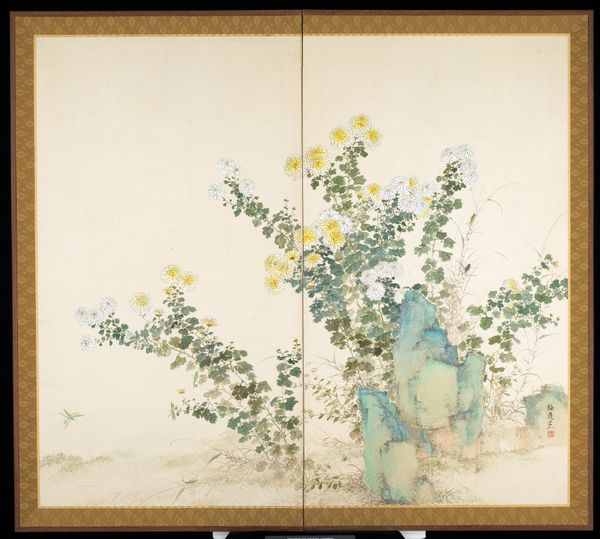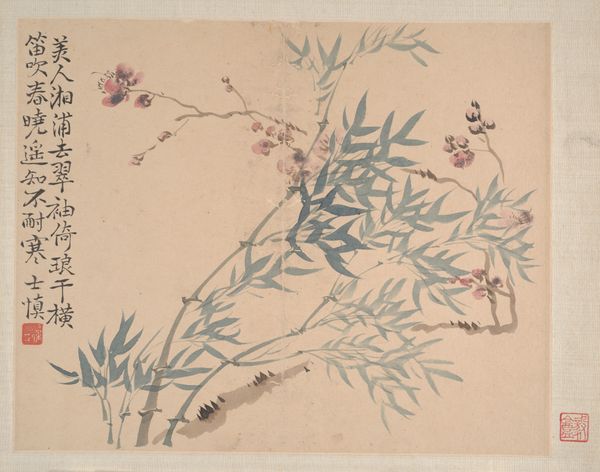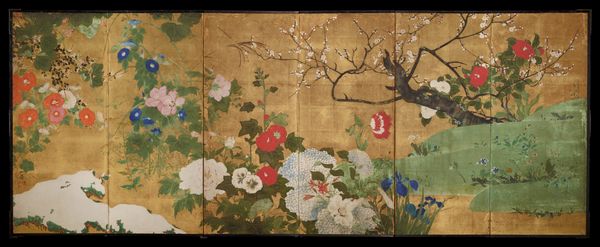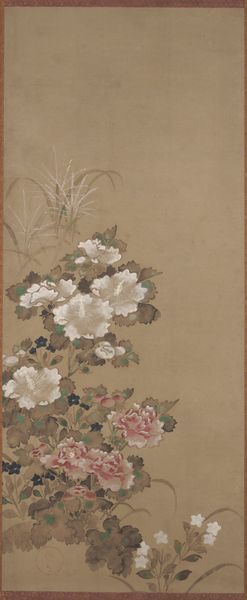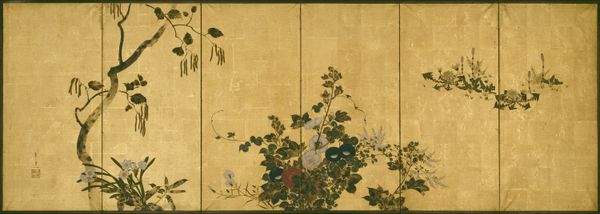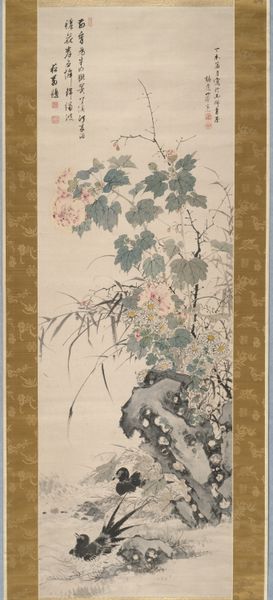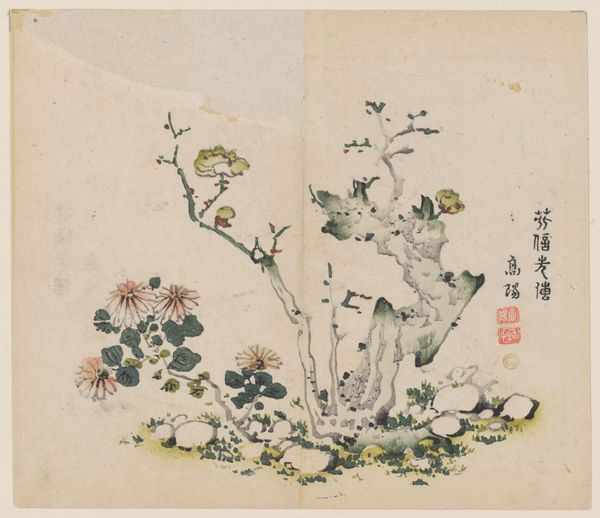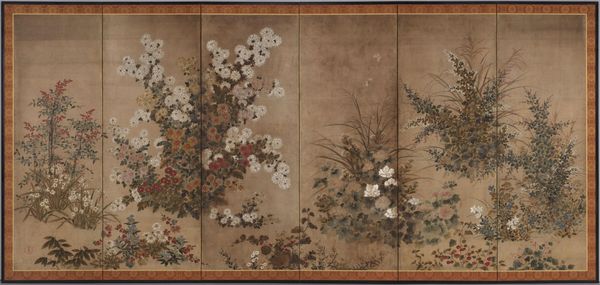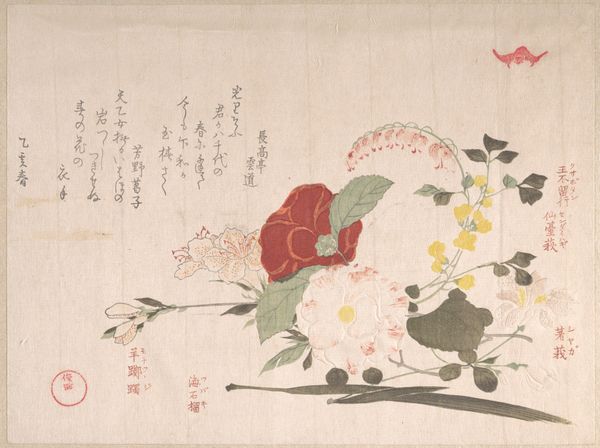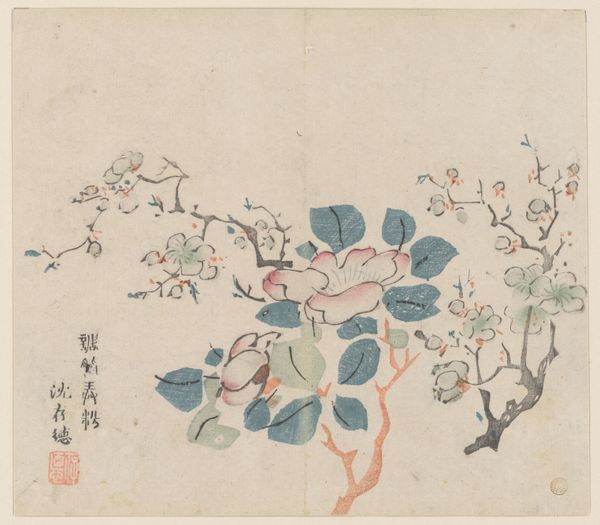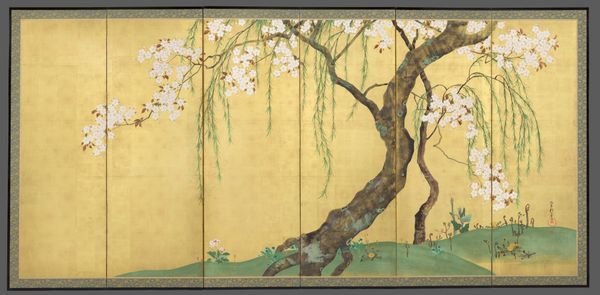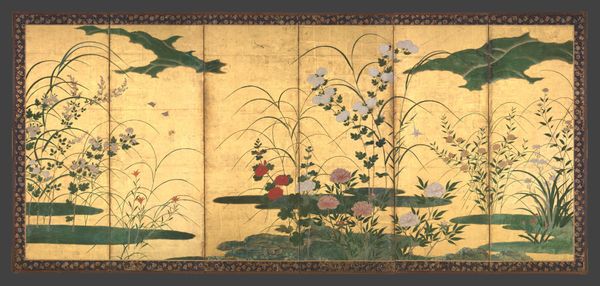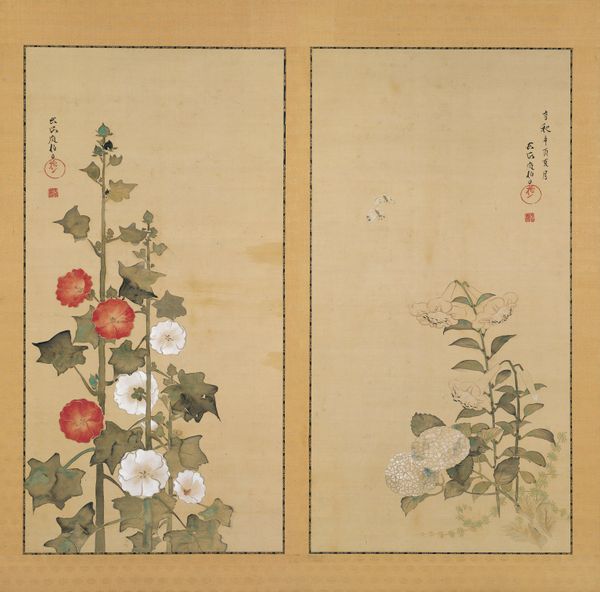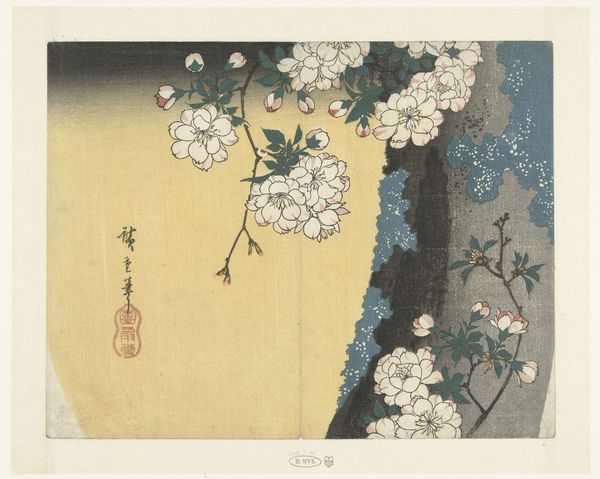![Spring [left of a pair of Flowers and Insects of Spring and Fall] by Yamamoto Baiitsu](/_next/image?url=https%3A%2F%2Fd2w8kbdekdi1gv.cloudfront.net%2FeyJidWNrZXQiOiAiYXJ0ZXJhLWltYWdlcy1idWNrZXQiLCAia2V5IjogImFydHdvcmtzL2IwYjA0YmYxLTA3ZjUtNDZlZS05ZDYwLTBkMTNjNWY2NzY5NC9iMGIwNGJmMS0wN2Y1LTQ2ZWUtOWQ2MC0wZDEzYzVmNjc2OTRfZnVsbC5qcGciLCAiZWRpdHMiOiB7InJlc2l6ZSI6IHsid2lkdGgiOiAxOTIwLCAiaGVpZ2h0IjogMTkyMCwgImZpdCI6ICJpbnNpZGUifX19&w=3840&q=75)
Spring [left of a pair of Flowers and Insects of Spring and Fall] c. mid 19th century
0:00
0:00
painting, watercolor, ink
#
water colours
#
painting
#
asian-art
#
landscape
#
ukiyo-e
#
japan
#
figuration
#
watercolor
#
ink
#
botanical drawing
#
orientalism
#
line
#
botanical art
#
watercolor
#
realism
Dimensions: 60 3/8 x 67 13/16 in. (153.35 x 172.24 cm) (image)66 15/16 x 74 1/2 in. (170.02 x 189.23 cm)
Copyright: Public Domain
Editor: So, this lovely screen is "Spring," part of a pair with "Flowers and Insects of Spring and Fall," created by Yamamoto Baiitsu around the mid-19th century using ink and watercolor. I find the composition incredibly delicate, almost fragile. How would you interpret it? Curator: As a materialist, I'm immediately drawn to the materials used - ink and watercolor on what looks like silk or paper. What specific processes were involved in its creation, and who were the artists or artisans behind it? This wasn’t simply created by the named artist alone; what labor divisions do we find at play? How did those impact the availability and appreciation of these types of art? Editor: That’s an interesting point. I hadn't considered the labor aspect so directly. So, it's not just about Baiitsu's skill, but the whole workshop ecosystem supporting the production. How do you see that reflected in the artwork itself? Curator: The very fine lines and delicate washes suggest specialized brushwork techniques. Consider how access to quality materials and the training required to master those techniques reflect societal hierarchies and consumerism in 19th-century Japan. Does the art itself embody an ideal of refined leisure, even for the consumption of images depicting leisure, or is there something in its very making that gives that ideal the lie? Editor: So, you’re saying the artwork embodies the story of its own making and potentially reveals a complex relationship with labor and social structures. It is definitely a lens through which we might better view that history. Curator: Precisely. And to me, those things add significant layers to our appreciation of what at first may seem a decorative piece. Editor: I never really thought about ukiyo-e landscapes through a labor lens. Thanks, I will try to keep that in mind for other works we will analyze.
Comments
minneapolisinstituteofart about 2 years ago
⋮
A renowned scholar-painter in 19th century Japan, Yamamoto Baiitsu used the difficult "boneless" technique of applying pigment directly to the paper, without outlines, as a way to impart a palpable delicacy to leaves and petals. As demonstrated in these screens, he also was skilled at capturing nature's complicated profusion of vegetation. Unlike his predecessors, who had little firsthand knowledge of Chinese painting styles, Baiitsu had direct access to Ming dynasty bird-and-flower paintings, imported through the port at Nagasaki. Here, he acknowledged his debt to China by rendering the garden rocks in their blue-green manner.
Join the conversation
Join millions of artists and users on Artera today and experience the ultimate creative platform.
